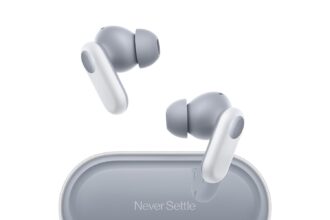In a rapidly changing world, startups continually emerge to address evolving customer needs, lifestyle changes, and societal challenges. In the wake of recent global disruptions, including pandemics, climate change concerns, and shifts in consumer behavior, businesses must adapt to these emerging norms. This article explores some of the most significant trends shaping the best startup ideas today and how entrepreneurs can leverage them for success.
1. Emphasis on Health and Wellness
The prioritization of health and wellness has reached new heights, influencing industries from food to fitness. Startups focused on holistic health solutions, mental well-being apps, and personalized nutrition plans are in high demand. Offering products and services that promote physical and mental health, such as organic meal delivery, mindfulness apps, and fitness coaching platforms, can resonate strongly with current consumers who prioritize their well-being.
2. Sustainability and Eco-Innovation
As climate change becomes an increasingly urgent issue, startups that integrate sustainability into their business models are gaining traction. Eco-friendly products, such as zero-waste packaging, ethical fashion lines, and renewable energy solutions, attract environmentally conscious consumers. Businesses that commit to ethical sourcing and demonstrate transparency in their operations often foster a loyal customer base passionate about sustainability.
3. Remote Work Solutions
The shift to remote work has transformed how businesses operate. Startups that offer tools to enhance productivity and collaboration for remote teams, such as project management software, virtual coworking spaces, and communication platforms, can thrive in this new landscape. Additionally, services aimed at helping individuals create effective home office environments, including ergonomic furniture and tech solutions that enhance connectivity, are gaining popularity.
4. E-commerce Innovations
E-commerce has exploded as more consumers prefer the convenience of online shopping. Startups that create unique online shopping experiences, such as augmented reality fitting rooms, subscription boxes, and social commerce platforms, are well-positioned to carve out a niche in the competitive market. Additionally, solutions that optimize delivery processes, such as local delivery services and automated fulfillment centers, can significantly improve customer satisfaction and retention.
5. EdTech Evolution
The education sector has seen a dramatic shift towards online learning. Startups that provide accessible educational content, personalized learning experiences, or tools for educators are tapping into a growing market. Online tutoring services, skill development platforms, and innovative learning management systems that offer flexibility and scalability are increasingly popular as learners seek alternative pathways to education.
6. Digital Health and Telemedicine
The healthcare industry has witnessed an unprecedented surge in the adoption of digital health solutions. Startups focusing on telemedicine, remote patient monitoring, and health apps are responding to the need for accessible and efficient healthcare. Solutions that facilitate consultations, manage chronic diseases, or track health metrics can significantly improve patient outcomes and healthcare delivery.
7. Gig Economy and Flexible Work
The rise of the gig economy has transformed traditional employment models. Startups that cater to freelancers and independent workers by offering platforms for job matching, invoicing, and tax assistance are gaining popularity. Additionally, solutions that provide benefits traditionally associated with full-time employment—such as health insurance or retirement plans for gig workers—can bridge the gap in this evolving workforce.
8. Personalization and Customization
In today’s market, consumers are gravitating toward personalized products and services tailored to their individual preferences. Startups leveraging data analytics and AI to create unique customer experiences—whether in fashion, beauty, or technology—are meeting this demand. Customized subscriptions or tailored recommendations create meaningful engagement and foster brand loyalty.
Conclusion
The startup landscape is evolving rapidly, influenced by changing societal norms and consumer behaviors. Entrepreneurs who recognize these trends can better position themselves for success. Whether through health-focused solutions, sustainable products, remote work innovations, or personalized experiences, catering to new norms is vital for modern startups today.
FAQs
1. What are the best startup ideas currently?
The best startup ideas today focus on health and wellness, sustainability, remote work solutions, e-commerce innovations, EdTech, digital health, gig economy services, and personalized products.
2. How can I identify trends for my startup?
Monitor market research reports, consumer behavior studies, and industry analyses. Engage with customers through surveys and social media to gain insights into their preferences.
3. Is it too late to start a business in a popular trend?
While some markets may seem saturated, unique angles, innovations, and exceptional customer service always stand out. Identify gaps in the market and address unmet needs.
4. What role does technology play in startup success?
Technology enhances efficiency, improves customer experience, and provides tools for scaled operations. Incorporating tech solutions can differentiate your startup from competitors.
5. How can I ensure my startup remains relevant over time?
Stay adaptable and open to feedback. Regularly reassess your business model, keep up with industry trends, and be willing to pivot in response to changing market demands.










